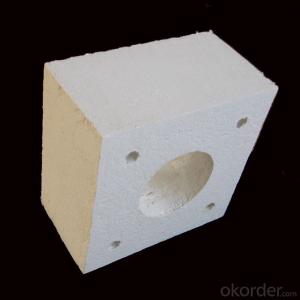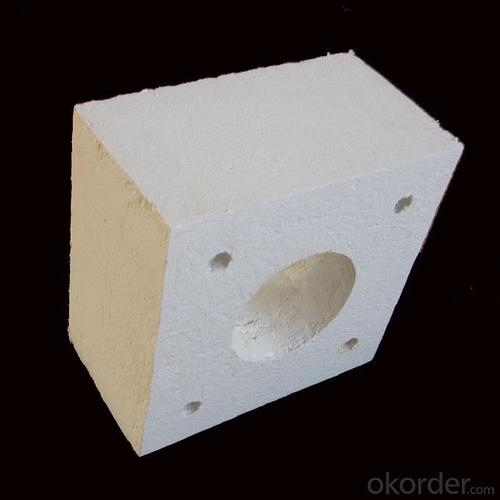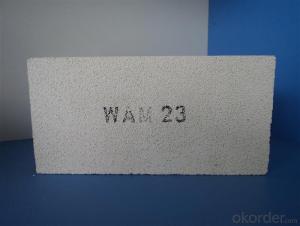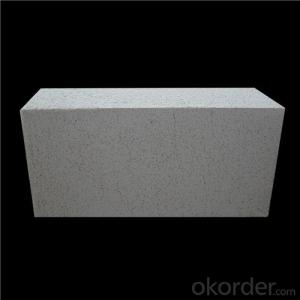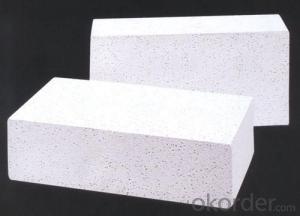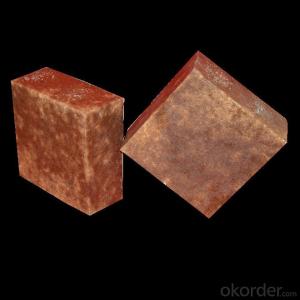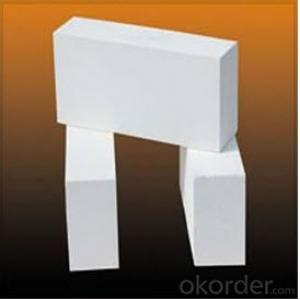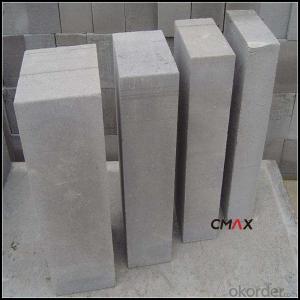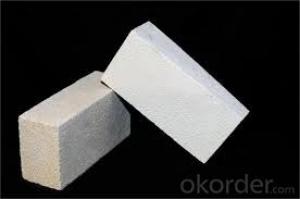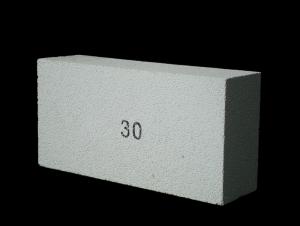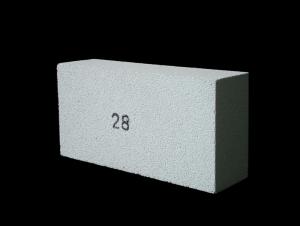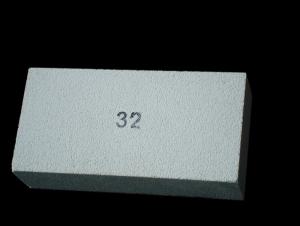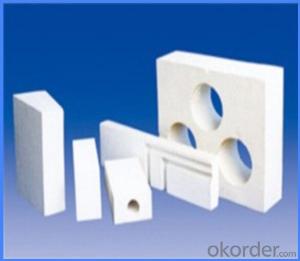Insulating Fire Brick for Steel Ladle - Refractory Insulating Fire Brick
- Loading Port:
- Shanghai
- Payment Terms:
- TT OR LC
- Min Order Qty:
- 10 m.t.
- Supply Capability:
- 100 m.t./month
OKorder Service Pledge
OKorder Financial Service
You Might Also Like
Quick Details
| Place of Origin: | (Mainland) | Shape: | Block | Material: | Alumina Block,aluminum carbon |
| Al2O3 Content (%): | 70 min | Refractoriness (Degree): | 1770°< Refractoriness< 2000° | Model Number: | Refractory Brick |
| Brand Name: | item: | Refractory Brick | service: | OEM service | |
| web: | skype: |
Packaging & Delivery
| Packaging Detail: | wooden box ,loading by container or according to client required |
| Delivery Detail: | General 10-15 days, according to clients required quantity |
Refractory Insulating Fire Brick for Steel Ladle
Refractory Brick For Ladle Materials are widely used in the big steel-making mills
Product Description
1.With high strength, high refractoriness, strong erosion resistance.
2.Can be customized according to customer's drawings for production.
3.The well block is suite with the nozzle , it can use in the steel making and the foundry,the tundish and ladle all can use it.The well block has long service life, no crack and no leak.
4. The well block use main the material with the high content of carbon and almnium or the zirconic.
5.We can produce the different shape according to the requirement of the client.
Our Services
1.Helping you lower the cost for casting,
2.Helping you improve quality of final steel and service to our customer,
3.Put Client profile into first, achieved mutual benefit.
Let every customer thumbsup for us saying: “Topchase is Very Good Partner.”
- Q: How do insulating fire bricks help improve the efficiency of heat treatment processes?
- Insulating fire bricks play a crucial role in improving the efficiency of heat treatment processes. These bricks are specially designed to have low thermal conductivity, which means they are excellent at insulating against heat transfer. This insulation property helps to minimize heat loss and maintain high temperatures within the heat treatment furnaces or kilns. By using insulating fire bricks, the heat treatment process can achieve higher temperatures more efficiently. The bricks act as a barrier, preventing the heat from escaping the furnace and ensuring that it remains concentrated inside. This not only enhances the overall energy efficiency of the heat treatment process but also reduces the need for excessive fuel consumption. Furthermore, insulating fire bricks also contribute to a reduction in the heating time required for the heat treatment process. Due to their low thermal conductivity, they minimize the heat loss to the surrounding environment, allowing the furnace to reach the desired temperature quickly. This not only saves time but also reduces the energy consumption associated with prolonged heating. In addition to thermal insulation, insulating fire bricks also provide mechanical strength and durability. They can withstand high temperatures without undergoing significant structural changes or damage. This ensures that the bricks maintain their insulating properties over an extended period, allowing for consistent and efficient heat treatment processes. Moreover, the use of insulating fire bricks helps to create a more controlled and stable thermal environment within the furnace or kiln. Their insulation properties prevent temperature fluctuations and hotspots, ensuring uniform heat distribution throughout the treatment process. This stability is crucial for achieving consistent and high-quality results in heat treatment applications. In conclusion, insulating fire bricks are essential in improving the efficiency of heat treatment processes. Their low thermal conductivity, ability to minimize heat loss, and capacity to withstand high temperatures contribute to reduced energy consumption, faster heating times, and improved temperature control. By incorporating these bricks, heat treatment operations can achieve higher efficiency, lower costs, and more consistent results.
- Q: Are insulating fire bricks resistant to hydrogen sulfide?
- Insulating fire bricks are generally not resistant to hydrogen sulfide. Hydrogen sulfide is a highly corrosive gas that can react with many materials, including fire bricks. While fire bricks are designed to withstand high temperatures, they are not specifically designed to resist chemical corrosion. If exposed to hydrogen sulfide, fire bricks may deteriorate over time, leading to potential damage or failure. Therefore, it is recommended to use alternative materials that are specifically designed to resist hydrogen sulfide corrosion in applications where exposure to this gas is expected.
- Q: Are insulating fire bricks resistant to thermal expansion or contraction?
- Yes, insulating fire bricks are resistant to thermal expansion and contraction. These bricks are made of materials that have low thermal conductivity, allowing them to withstand high temperatures without undergoing significant expansion or contraction. This property makes them ideal for applications where thermal stability and insulation are required, such as in kilns, furnaces, and other high-temperature environments.
- Q: Can insulating fire bricks be used in the construction of thermal insulation floors?
- Yes, insulating fire bricks can be used in the construction of thermal insulation floors. Insulating fire bricks are specially designed to have low thermal conductivity, which means they can effectively prevent the transfer of heat. This makes them an excellent choice for thermal insulation applications, including floors. By using insulating fire bricks in the construction of thermal insulation floors, the heat loss from the floor can be significantly reduced, leading to improved energy efficiency and cost savings. Additionally, insulating fire bricks are lightweight and easy to install, making them a practical choice for construction projects. Overall, insulating fire bricks are a suitable and effective option for incorporating thermal insulation into floors.
- Q: Are insulating fire bricks resistant to carbon dioxide?
- Yes, insulating fire bricks are resistant to carbon dioxide.
- Q: Are insulating fire bricks resistant to oil or chemical spills?
- Yes, insulating fire bricks are resistant to oil or chemical spills. These bricks are designed to withstand high temperatures and are made from materials that are chemically inert, which makes them highly resistant to the corrosive effects of oil or chemicals. This property makes insulating fire bricks an excellent choice for applications where exposure to oil or chemical spills is expected.
- Q: Are insulating fire bricks resistant to phosphoric acid?
- Phosphoric acid, being a strong acid, has the potential to react with and corrode various materials, including fire bricks. Although certain fire bricks may possess a degree of resistance to acidic conditions, insulating fire bricks are generally not equipped to endure prolonged exposure to phosphoric acid without experiencing notable deterioration. As a result, it is advisable to employ acid-resistant materials like acid-resistant bricks or linings when handling phosphoric acid or other potent acids.
- Q: Do insulating fire bricks require any maintenance?
- Yes, insulating fire bricks typically require minimal maintenance. They are designed to be durable and withstand high temperatures, so they generally do not need any special care or regular maintenance. However, it is important to inspect them periodically for any signs of damage or wear and tear, and if any issues are identified, they should be repaired or replaced to ensure their effective insulation properties.
- Q: Do insulating fire bricks have a high thermal shock resistance?
- Yes, insulating fire bricks generally have a high thermal shock resistance. They are designed to withstand rapid temperature changes without cracking or breaking, making them suitable for applications where thermal cycling occurs frequently.
- Q: Are insulating fire bricks resistant to freeze-thaw cycles?
- Yes, insulating fire bricks are generally resistant to freeze-thaw cycles. These bricks are designed to withstand extreme temperature changes, including freezing and thawing, without cracking or deteriorating.
Send your message to us
Insulating Fire Brick for Steel Ladle - Refractory Insulating Fire Brick
- Loading Port:
- Shanghai
- Payment Terms:
- TT OR LC
- Min Order Qty:
- 10 m.t.
- Supply Capability:
- 100 m.t./month
OKorder Service Pledge
OKorder Financial Service
Similar products
Hot products
Hot Searches
Related keywords
